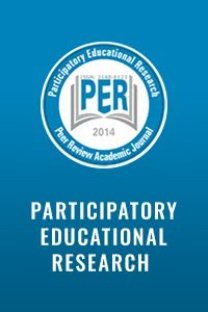Opinions of the 8th Grade Students and Teachers Who Participated in TIMSS 2015 on the Test: “The Example of Ağri”
TIMSS (Trends in International Mathematics and Science Study), is an international serway study that was held to evaluate the 4th and 8th grade students’ knowledge and their skills in mathematics and science at four-year intervals by International Educational Assessment Agency IEA Success (International Association for the Evaluation of Educational Achievement). In our country TURKEY, the TIMSS studies are conducted by Ministry of National Education (MoNE) Measurement, Evaluation and Examinations Services. Shortly Timss is defined as the researches of international science and mathematics educations. This survey study is conducted by the International Sudy center in BostonCollege- TIMSS PIRLS. The research to which many country across the globe has participated is a project which affects the education policies of the participatory countries. The aim of this study is to bring out the opinions of the 8th grade students who attended timss 2015 and teachers about the exam. This study has been conducted under case study approach. Case study method offers opportunities only in the case of searching the subject in depth but holistically within the context. Moreover the case study method is suitable to design and analyse for both quantitative and qualitative researches. The study was conducted with 24 students studying in the relevant class of a secondary school of Agri province centre where the exam is held and 6 teachers who give science and mathematic lectures in this school and at the same time participated in TIMSS activity as controllers. The data were collected through a queationnare prepared by the researchers. The data obtained from the study were subjected to descriptive and content analysis. In the study analysis were presented seperately as descriptive analyse and content analyse. As a result of the study, it was concluded that the students havent adequately prepared for the timss exam due to teog exams, the questions were hermeneutical rather than requiring knowledge and awareness level of the the teachers are low
Keywords:
TIMSS, Descriptive analysis, Science education Students and teachers’ opinions, Case study,
___
- Aktaş, I. (2011). Examining the relationship between students? science achievement and teachers? characteristics in TIMSS 2007, (Unpublished master’s thesis). Hacettepe University, Graduate School of Social Sciences, Ankara.
- Aslan, F. (2005). Comparing science education program of Turkey with science education program of Singapore according to TIMSS-R, (Unpublished master’s thesis). Hacettepe University, Graduate School of Social Sciences, Ankara.
- Atar, H.Y. (2014). Öğretmen Niteliklerinin TIMSS 2011 Fen Başarısına Çok Düzeyli Etkileri, Education & Science / Egitim ve Bilim . 2014, Vol. 39 Issue 172, p121-137. 17p. Baykul, Y. (1990). İlkokul Beşinci Sınıftan Lise ve Dengi Okulların son Sınıflarına kadar Matematik ve Fen Derslerine karşı Tutumda Görülen Değişmeler ve Öğrenci Seçme Sınavındaki Başarı ile İlişkili olduğu Düşünülen Bazı Faktörler. Ankara: ÖSYM Yayınları. http://www.osym.gov.tr/belge/1-127/basilmis-arastirma-ve-incelemeler.html
- Brown, A. S. & Brown, L. L. (2007). What are science and math test scores really telling us?, The Bent of Tau Beta P., 13-17. http://www.tbp.org/pubs/Features/W07Brown. (10.09.2014)
- Büyüköztürk, Ş., (2004) Sosyal Bilimler İçin Veri Analizi El Kitabı [Handbook Of Data Analysis For Social Sciences], 4. Baskı, Ankara: Pegema Yayıncılık,
- Chamberlain, K. & Crane, C.C. (2009) Reading, Writing and Inquiry in the Science Classroom, Grades 6-12. California: Corwin Press.
- Cohen, L. ve Manion, L. (1994). Research Methods in Education. (Fourth Edition), Newyork: Rutledge.
- Çepni, S. (2009). Araştırma ve Proje Çalışmalarına Giriş Introduction to Research And Projects Studies]. (Revised Edition). Trabzon: Celepler Matbaacılık
- Oral, I., & McGivney, E. (2013). Türkiye’de Matematik ve Fen Bilimleri Alanlarında Öğrenci Performansı ve Başarının Belirleyicileri Tımss 2011 Analizi. http://erg.sabanciuniv.edu/sites/erg.sabanciuniv.edu/files/ERG%20-TIMSS%202011%20Analiz%20Raporu-03.09.2013.pdf
- Geçer, A. & Özel, N. (2012) Elementary science and techology teachers‟ views about problems encountered in the ınstruction process. Educational Science: Theory & Practice, 12 (3), 2256-2261.
- Karabacak, K. (2010). Educational dilemmas caused by SBS, (Unpublished master’s thesis). Abant İzzet Baysal University, Institue of Social Sciences, Bolu.
- Karamustafaoğlu, O., & Sontay, G. (2012). Bir TIMSS sınavının ardından: TIMSS 2011’e katılan öğrenci ve uygulayıcı öğretmenlerin görüşleri http://kongre.nigde.edu.tr/xufbmek/dosyalar/tam_metin/ ( 09.08.2015)
- Korkmaz, F. (2010). Contribution of Some Factors to Eighth Grade Students‟ Science Achievement in Turkey: TIMSS 2007. (Unpublished master’s thesis). Middle East Technical University Graduate School of Natural and Applied Science, Ankara.
- Öztürk, D. ve Uçar, S. (2010) TIMSS verileri kullanılarak Tayvan ve Türkiye‟deki 8. sınıf öğrencilerinin fen başarısına etki eden faktörlerin belirlenmesi ve karşılaştırılması. Çukurova Üniversitesi Sosyal Bilimler Enstitüsü Dergisi, 19(3), 241-256. http://dergipark.ulakbim.gov.tr/cusosbil/article/view/5000001459/5000002150
- Öztürk, L. (2010) TIMSS 2007 and success of our educational system: Views of educators and school administration, (Unpublished master’s thesis). Marmara University, Institue of Social Sciences, İstanbul.
- Wellington, J., (2000). Educational Research, Continuum, London and New York
- ISSN: 2148-6123
- Yayın Aralığı: Yılda 6 Sayı
- Başlangıç: 2014
- Yayıncı: Özgen KORKMAZ
